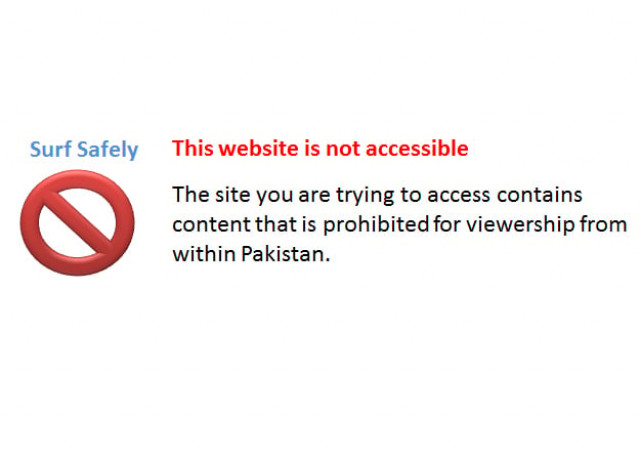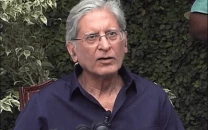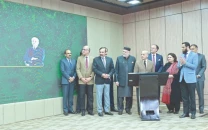Unrestricted access: Cyber units fail to disable or block TTP website
Officials attribute cyber units’ helplessness to absence of proper legislation.

Security analysts believe that terrorist groups’ online presence and activities are the launching pads for new entrants. STOCK IMAGE
It was the TTP that claimed responsibility for the Dec 16 attack on the Army Public School in Peshawar.
Neither the Pakistan Telecom-munication Authority (PTA) nor the Federal Investigation Agency can disable the TTP website or prevent people from accessing it through their cyber crime wings.
Officials attributed the cyber units’ helplessness against the TTP’s propaganda tool to the absence of proper legislation.

The group’s website, which was launched two years ago, is fully functional by the name of Umar Media. The Taliban continue to use the website to disseminate their propaganda.
The website carries the TTP flag, verses from the Holy Quran, statements and videos containing sectarian, hate and propaganda material, especially against security forces and a message of TTP’s Shaikh Khalid Haqqani for the people of Balochistan. It also has pictures of slain TTP chief Hakimullah Mehsud and his successor and the incumbent chief Mullah Fazlullah.
Officials tend to blame each other for their ineptness to disable the website.
The PTA chairman and other senior officials told The Express Tribune that the authority takes action only on written complaints, and that it is too difficult to trace out such sites. They sought cooperation of intelligence agencies for required actions. Abdul Samad, a senior official in PTA, said that the vigilance cell of the authority only deals with cases related to grey trafficking.
Grey trafficking refers to arrangements that fall outside the regular course of business between licenced telecom companies in each country.
Mudassir Hussain, an enforcement member at PTA, said that many such outfits are operating websites under changed names, compounding the task of restricting public access.
Anusha Rehman, the state minister for information technology, said that a bill on cyber crimes is being introduced to handle such issues. Yasin Farooq, director of the cyber crimes unit of the FIA, said that for blocking of such websites, the agency can initiate action with the cooperation of PTA.
Security analysts believe that terrorist groups’ online presence and activities are the launching pads for new entrants. Aamir Rana, director of Pakistan Institute for Peace Studies (PIPS), said that militants are also using the latest technology to recruit manpower in their ranks. Sajjad Azhar, a researcher at the institute, said it seems that the relevant authorities are not aware of the level of threat these websites pose.
“Cyber crimes bill 2015 (Prevention of Electronic Crimes Bill) is being thoroughly reviewed in order to make it consistent with the National Action Plan (NAP). This is so it can cater to the growing needs of the drastically changing and challenging scenario in the wake of increasing terrorism in cyber space,” said Rehman.
Replying to a question, she said that the bill on cyber crimes, proposed by PPP lawmaker Abdul Karim Khawaja, does not cater fully to the needs.
Published in The Express Tribune, March 4th, 2015.



















COMMENTS
Comments are moderated and generally will be posted if they are on-topic and not abusive.
For more information, please see our Comments FAQ